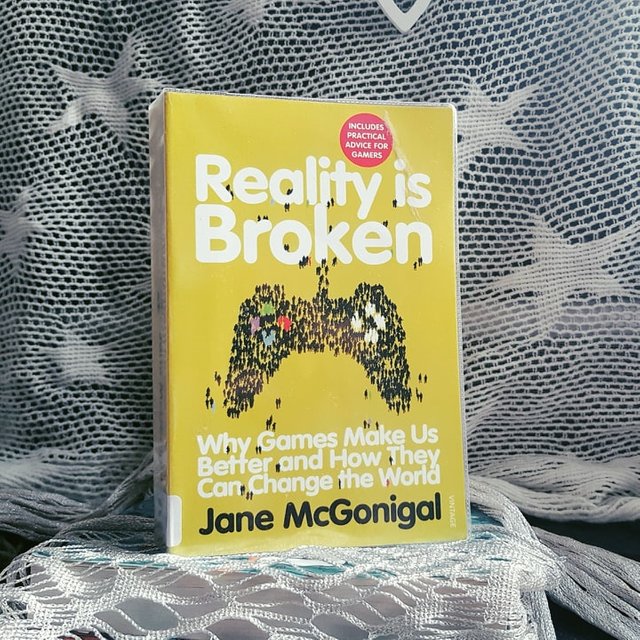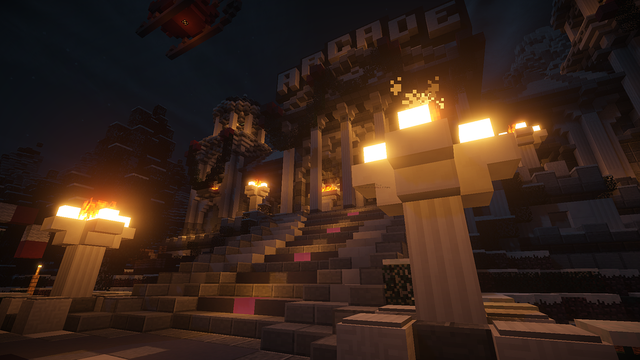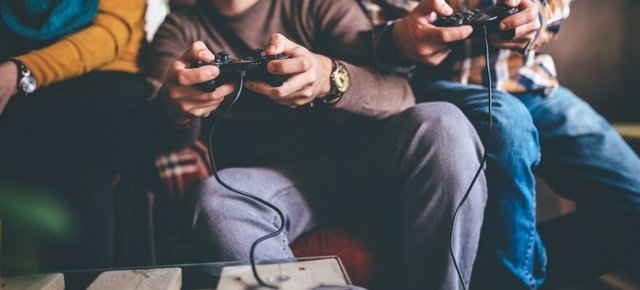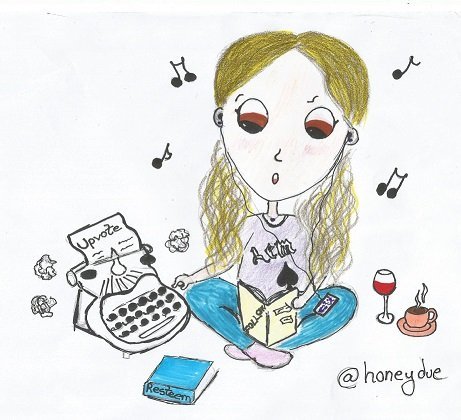Broken Reality (Why Video Games Can Save the World)
I like the word 'broken'. I like the word 'fixed' as well, but not as much as I like 'broken'. Everything in this world is broken. Everything and everyone. And while that might sound somewhat depressing, let's not dwell on that, but on alternatives, on ways of fixing it. Because we love fixing things, don't we? We thrive on the idea everything can be alright, even though in truth, it can not.
I was reading this book called 'Reality is Broken', by game developer Jane McGonigal and it proposes some really interesting ideas. It's basically about how much we, as a society, can learn from games and how we might improve our lives and our reality by implementing those game lessons.

Today, most people dismiss gaming as a waste of time, mainly because that's how they've been taught to think. It's a popular belief that games are a waste, that children as well as adults should be serious and work oriented, so we tend to look down upon someone who spends most of their time playing games. Even though that person is much happier than we are, in many cases.
Because gamers are happier. Why? Well, because that's the basis of a game - it's a quest, it's a task that once fulfilled gives you pleasure and makes you feel happy. We tend to think of games as mindless entertainment, but they're not. They're one of the best pastimes we have in our society.
See, most of our leisure activities are passive - watching TV, window-shopping, even plain hanging out. McGonigal actually quotes a really interesting study that found people were more depressed after doing "something fun" than before they did it. And I find that fascinating, because I think most of our population today is sad and I think that's one of the main reasons we're sad.
She also explains the difference between intrinsic and extrinsic happiness and how the consumerist society of today largely focuses on the second one, which isn't really happiness at all. One of the biggest goals anyone seems to have is to make money. Not just to survive. Because in today's society the person who only makes enough money to put food on the table and clothes on their child is considered poor, thus automatically unhappy. No, we work to make lots of money, so that we can afford a lot of useless shit. We go to the mall, we spend two hundred dollars on some clothes identical tot he ones at home or on some skincare products or on whatever. We fight for the latest cars and gadgets and will not stop until we're in possession of what society dictates as a 'must'.
And that's what's supposed to make you happy - going shopping, consuming a hugely overpriced coffee at Starbucks or eating at a fancy restaurant. And then, there's watching TV, which although fun, is again passive - you don't have an active role in what's happening on screen, even though you like to think you do.

src
Enter games. And specifically, video games (although this is as true about tennis as it is about World of Warcraft). You wanna know why games are great? Because they're pointless. No really, in a game you're basically trying to achieve a pointless quest. You don't actually need to do it and yet, you take pleasure in doing it, precisely because you're doing it voluntarily.
I want to save the Princess and I will save the Princess. In my real life, I'm not faces with such interesting quests. For most of us, our biggest "quest" is buying TP at the general store. And that's not satisfying. Games allow us to make life interesting and for the first time, people are starting to think that maybe it's not wrong. That maybe wanting to make life interesting is not so stupid and that's something that can be used in bettering society. It can.
Games answer our need for feeling heroic, for achieving something great. Sure, we might achieve things in life, though not really that great. It's rare, the person who does something great IRL. Most of us will work boring desk jobs that bring no creative satisfaction, that don't really make us feel like heroes at all and generally leave us unfulfilled. So, we escape. We find a world where we can be heroes.
I mentioned intrinsic happiness. Games allow us to create our own happiness, because there, we're responsible for our in-game achievement and so, for our feel-good sentiment. We feel empowered when we're playing a game. It's simple.
Games are about community
You know how people are fond of blaming video games because kids aren't playing outside together anymore? Yeah, that's not really it. I've written before how it's actually the parents who are to blame for that. On the contrary, video games build community.
As McGonigal says, "if you think games make you lonely, you're not gaming". I love that, because it's very true. Games create worldwide communities of dedicated fans and many lifelong friendships, because many online games are about collaboration, about being on at the same time and working together towards the same goal (such as Halo, WoW, Heroes of the Storm). They force gamers to collaborate and to interact with others.

src
Furthermore, they're interacting with people with similar interests. Which is more than can be said about school or work. Most friendships formed at school or at the office disintegrate once one of the people leaves. Why? Because the main thing that brought them together is gone.
With games, it's different. Because people who liked the same game might like another, once that game is done. They build.
Seriously, do you know the number of wikis and debate forums there are out there about games? There's more passion there then we have in a lifetime at the office. Just think on that for a sec.
In her book, McGonigal presents some interesting ideas for "fixing" reality and making it more like a game, so that people become more interested and overall happier with their real lives. She explains the sense of purpose most lives lack, the boredom inherent in society - very real problems.
Reality is too easy. Reality is depressing. It's unproductive and hopeless. It's disconnected and trivial. It's hard to get into.It's pointless, unrewarding, lonely and isolating. It's hard to swallow. It's unsustainable. It's unambitious. It's disorganized and divided. It's stuck in the present.
Reality is a lot of these things. But in at least one crucially important way, reality is also better: reality is our destiny.
Just in case you thought her point might be to argue games are better and reality sucks. It's not. It's the ultimate case for why we need to save reality and why, to get that save, we need to stop viewing games as separate and stupid. We need to integrate them into our day-to-day lives. We need to take all the positive emotions that games give us and somehow integrate them into our lives, to make them more fulfilling.
It's not about games, it's about our reality with games. And it's a truly heartwarming read, and you should probably read it.
P.S.: And if you're being clever behind your little screen, muttering to yourself that reality is all those things because of games, then think again. Reality was most of those things before video games even existed. Really, people two hundred years ago weren't that much happier. Yes, we are more disconnected, but that's not because of video games, it's despite video games.
Kids today aren't even allowed to talk during breaks at school - tell me again how video games are to blame? 'Cause I think the problem is a lot bigger than Mario Kart. Ironically, it might be through Mario Kart that your kids actually get to interact with others.
As for thinking people were happier and more connected some three hundred years ago, sure. You know what was one of the biggest social hub back in Ancient Rome? The arenas, the games. Our reality hasn't gone bad. It's just taken the next logical step, as far as games are concerned. But today's epic video games a la Fortnite and Mario have the same core values as golf or dice or Tetris.
Thanks for reading,
.jpeg)
Hmm...
Posted using Partiko Android
Mmmh...
Ughhh.
Very interesting read. As long as you give yr eyes a break and get up and stretch every now and then yup I'm down with the arguement!
Although I'm not sure we can make generalisations about gamez - there's a lot of variety.
And I'm cautious about how beneficial games are if they have lots of in-app purchases.
Posted using Partiko Android
Agreed, the eyes are a bitch. I spend alot of time writing (on the computer, naturally) and then, playing, so at the end of the day, my eyes are like aaaarghhh :))
No, not all games, but many share common things that draw people in.
Agreed about the in-app purchases, that can lead down a slippery slope very fast, but as long as you're careful of what you spend, you should be alright :D
I have always believe that it depends on how we want games most especially video games to influence us. It can influence us positively or negatively.
Congratulations @honeydue! You have completed the following achievement on the Steem blockchain and have been rewarded with new badge(s) :
You can view your badges on your Steem Board and compare to others on the Steem Ranking
If you no longer want to receive notifications, reply to this comment with the word
STOPVote for @Steemitboard as a witness to get one more award and increased upvotes!
Great read. Well written. Sports are like games, too. A pointless quest to take the thing through to the thing more times than the people wearing identical jumpers for some reason that are unlike yours.
Posted using Partiko Android